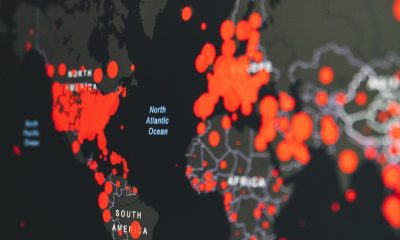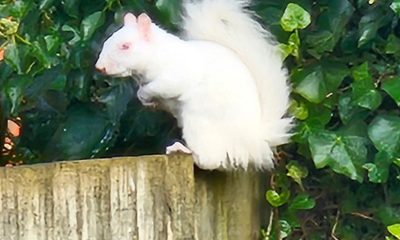By James Gamble via SWNS
Space dust from faraway galaxies could provide the quickest and easiest way to find proof of the existence of alien life on other planets, suggests a new study.
Japanese scientist Tomonori Totani says dust from enormous asteroid collisions could be collected - either in space or here on Earth - and studied to prove the existence of life on planets other than our own.
Totani, who works at the University of Tokyo, says minuscule fragments of rocks far smaller than a grain of sand could show signs of extraterrestrial life.
Totani believes the tiny particles could cut short man's search for life on other planets - without us actually having to travel to them.
Huge collisions involving asteroids and meteoroids can sometimes eject material out into space.
This material can travel vast distances over long periods of time and could, in theory, contain direct or indirect signs of life from other worlds, such as microorganisms or fossils.
In a paper published in the International Journal of Astrobiology, Totani, from the University of Tokyo’s Department of Astronomy, makes the argument that these signs could be detectable by humans in the near future - or even now.
Space dust, solid material floating through space, can prove useful in helping astronomers learn about something distant without having to travel there.
The material can vary in size, with larger pieces potentially falling back down to the ground or entering permanent orbits around planets or stars.
via GIPHY
Miniscule grains of space dust in the region of one micrometer - a thousandth of a millimeter - could potentially host a single-celled organism.
Totani believes the study of space dust, though sounding like science fiction, should be taken seriously by astronomers searching for alien life.
He said: “I propose we study well-preserved grains ejected from other worlds for potential signs of life.
“The search for life outside our solar system typically means a search for signs of communication, which would indicate intelligent life but precludes any pre-technological life.
"Or the search is for atmospheric signatures that might hint at life, but without direct confirmation, there could always be an explanation that does not require life.
"However, if there are signs of life in dust grains, not only could we be certain, but we could also find out soon."
Many such grains from faraway stars and planets may already be here on Earth; preserved in Antarctic ice or under the seafloor.
These dust particles could be relatively easily retrieved, though telling the difference between material from our own solar system and material from others is still a complex matter.
However, the search for space dust could be extended to space.
There are already existing missions which capture dust using ultralight, silicon-based material called aerogels, which collects particles without damaging them.
Totani added: "My paper explores this idea using available data on the different aspects of this scenario.
"The distances and times involved can be vast, and both reduce the chance any ejecta containing life signs from another world could even reach us.
"Add to that the number of phenomena in space that can destroy small objects due to heat or radiation, and the chances get even lower.
"Despite that, I calculate around 100,000 such grains could be landing on Earth every year.
"Given there are many unknowns involved, this estimate could be too high or too low, but the means to explore it already exist so it seems like a worthwhile pursuit.
“I hope that researchers in different fields are interested in this idea and start to examine the feasibility of this new search for extrasolar life in more detail."

 Parenting1 week ago
Parenting1 week ago
 Lifestyle1 week ago
Lifestyle1 week ago
 Wildlife3 days ago
Wildlife3 days ago
 Good News4 days ago
Good News4 days ago
 Health4 days ago
Health4 days ago
 Entertainment1 day ago
Entertainment1 day ago
 Broadcast7 hours ago
Broadcast7 hours ago
 Work2 days ago
Work2 days ago






















